From the Creation to Judgement Day
The Oxford Medieval Mystery Plays 2025 are over – thank you to everyone who made this day possible! Read on for some pictures and impressions of a wonderful day. You can access the full programme, scroll through film stills by the camera team, and watch it on the OMS Youtube channel.
The fourth iteration of the Oxford Medieval Mystery Plays took place on 26 April at St Edmund Hall. And it was a truly marvellous day! A total of 13 plays were put on by about 150 participants – actors, directors, singers, costume designers, musicians, and many more. Throughout the day, about 350 audience members popped in and out of Teddy Hall, some staying for shorter periods, others for several hours or the whole day. Audience members and participants included a wonderful range: undergraduate and graduate students and academics from within and without Oxford, a full children’s choir, tourists, and members of the public found their way to Teddy Hall and partook in the medieval shenanigans.
And what shenanigans they were! This year, we are particularly proud of the incredible diversity of languages, plays, and different approaches on display. But see for yourself … (All photo credits are at the bottom of the post)
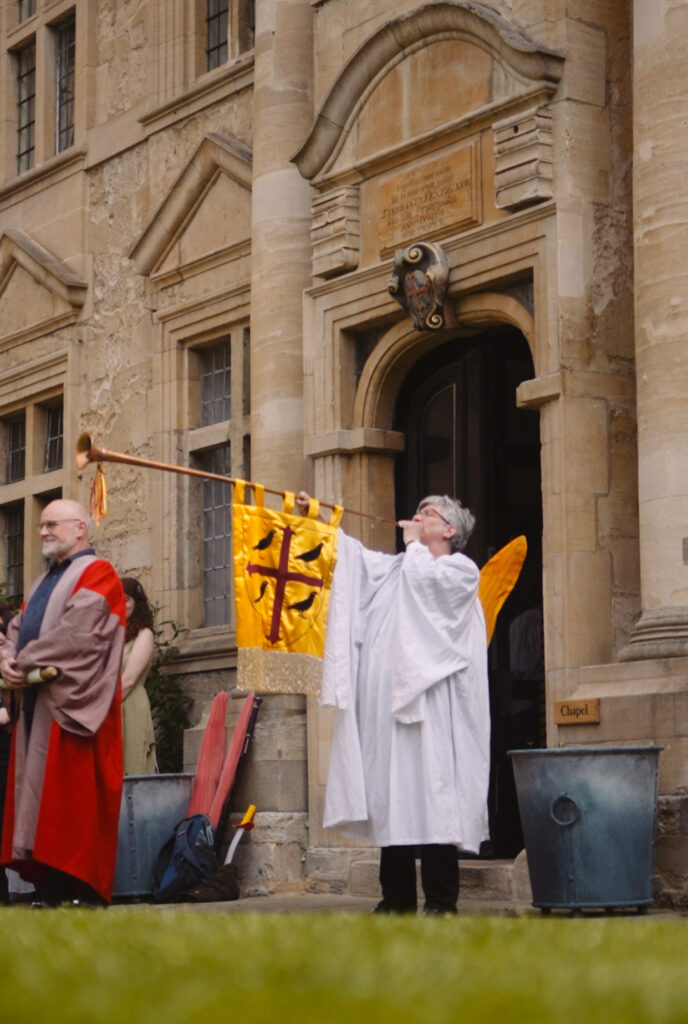
The day started – how could it be otherwise – with a trumpet blast from Henrike Lähnemann herself (Picture 1).
Once again, we were expertly guided through the day by Jim Harris, the Master of Ceremonies. Armed with Bruce Mitchell’s doctoral gown and the ceremonial scroll (consisting of the baking roll to the chaplain of St Edmund Hall, half a coat hanger and numerous layers of paper and sellotape), he introduced each play with a modern English prologue (Picture 2).
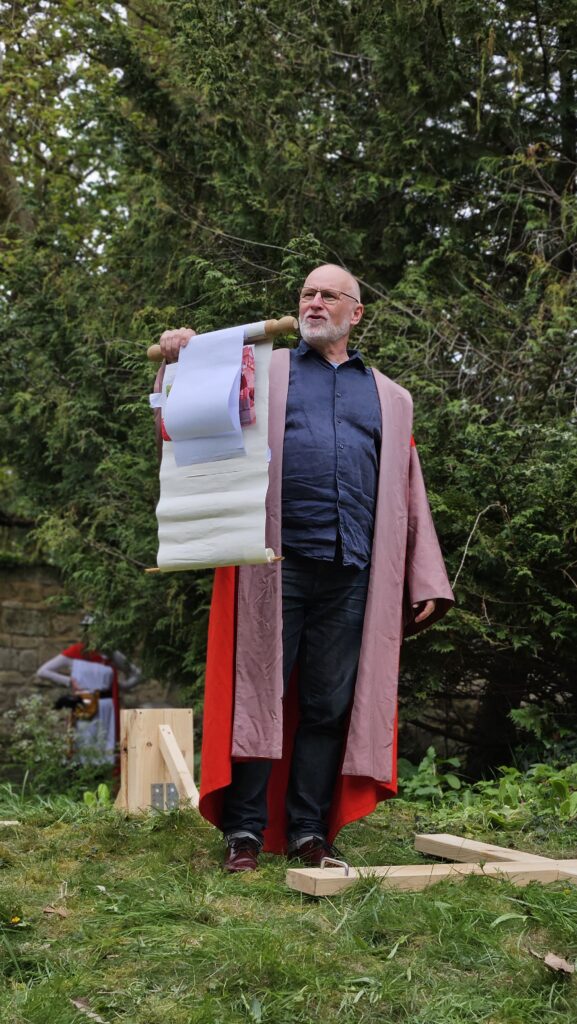
We began at the beginning, with the creation of the world and The Fall of the Angels, performed mostly in Middle English, but with modern English elements, and in a modern office setting.
Picture 3: The Holy Trinity is being fawned over by the two good angels … but trouble awaits: the two bad angels are getting arrogant, before their inevitable ejection from Heaven.
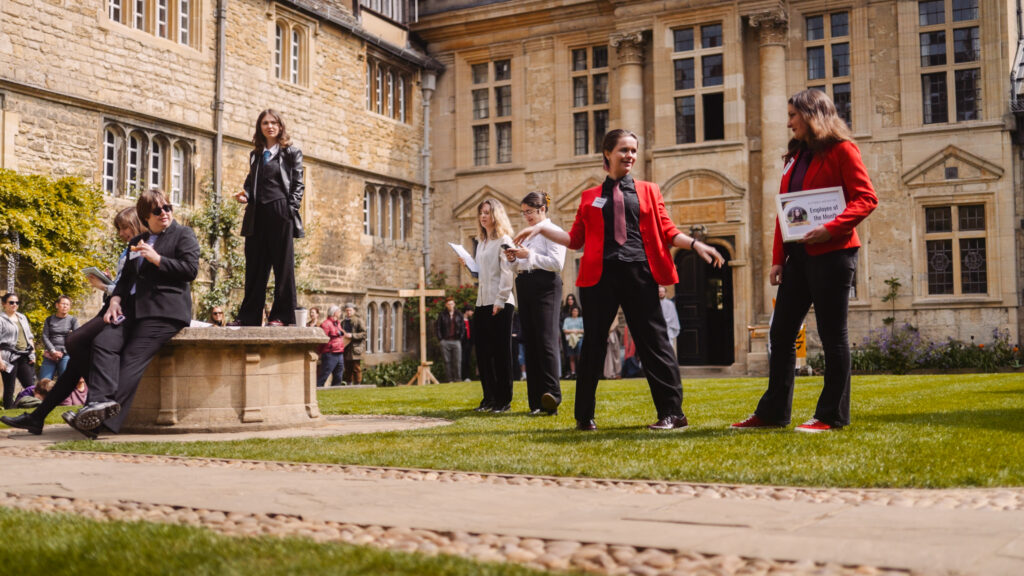
From the angels, we moved swiftly on to humans: next was the German Adam and Eve play by Hans Sachs, featuring a particularly good use of the well (the two humps underneath the spare green coat are Adam and Eve, about to be created).
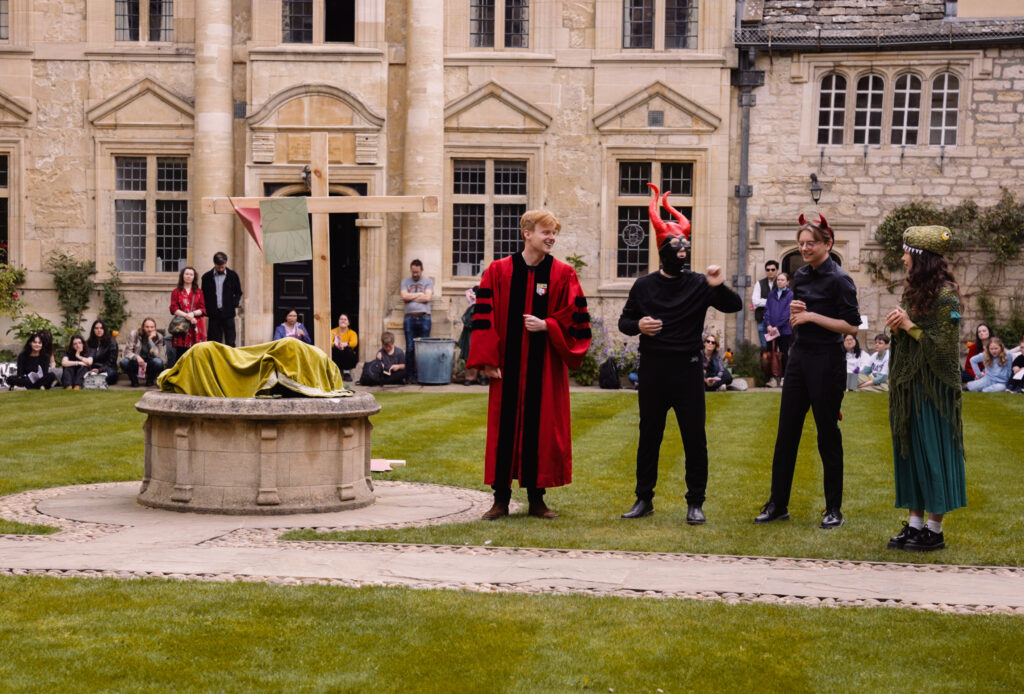
Picture 4: All could be well in Eden, if it wasn’t for Lucifer, Belial, Satan, and the Serpent conspiring.
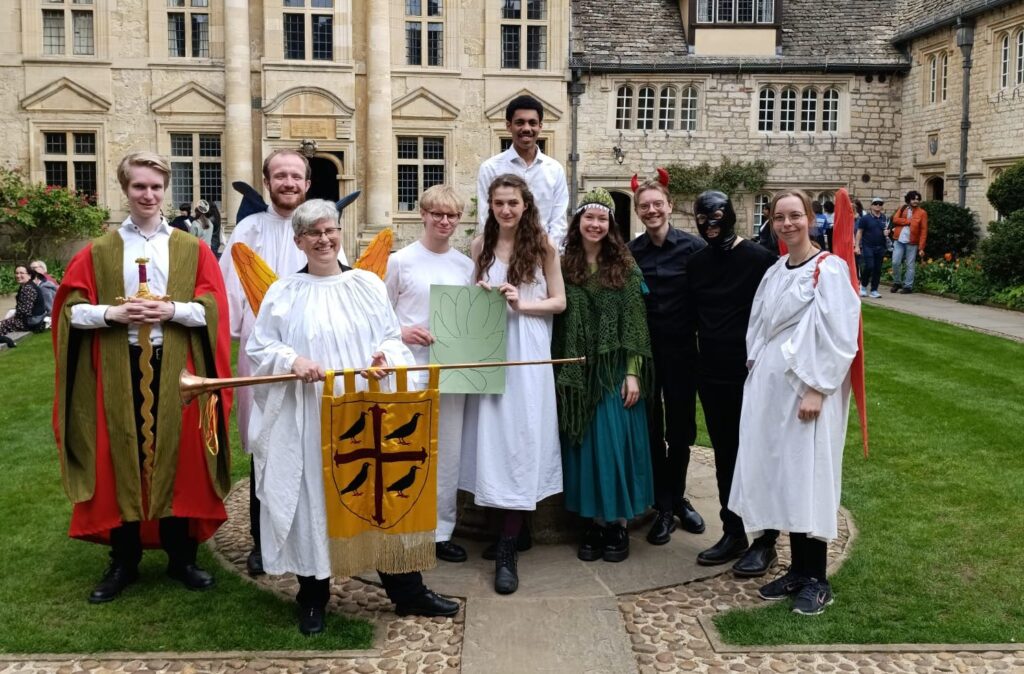
Picture 5: Adam and Eve might have fallen into desperation, but the cast have good reason to be proud of themselves, having made it to the front page of both the Oxford Mail and Oxford Times.
Skipping a few biblical ages, we next saw the Flood, presented in the Middle English Chester version.
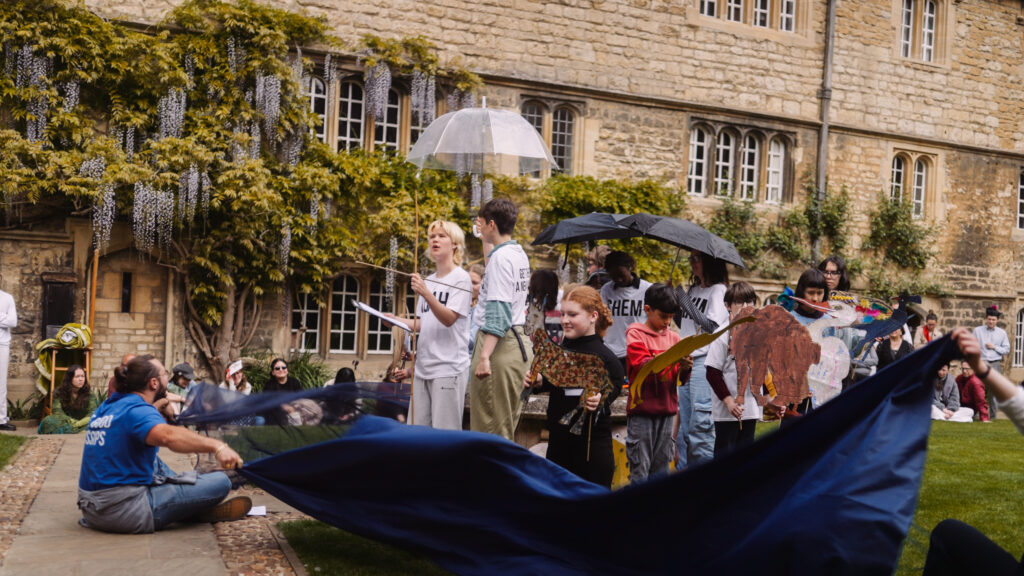
The Old Testament concluded with the Middle English York version of Abraham and Isaac.
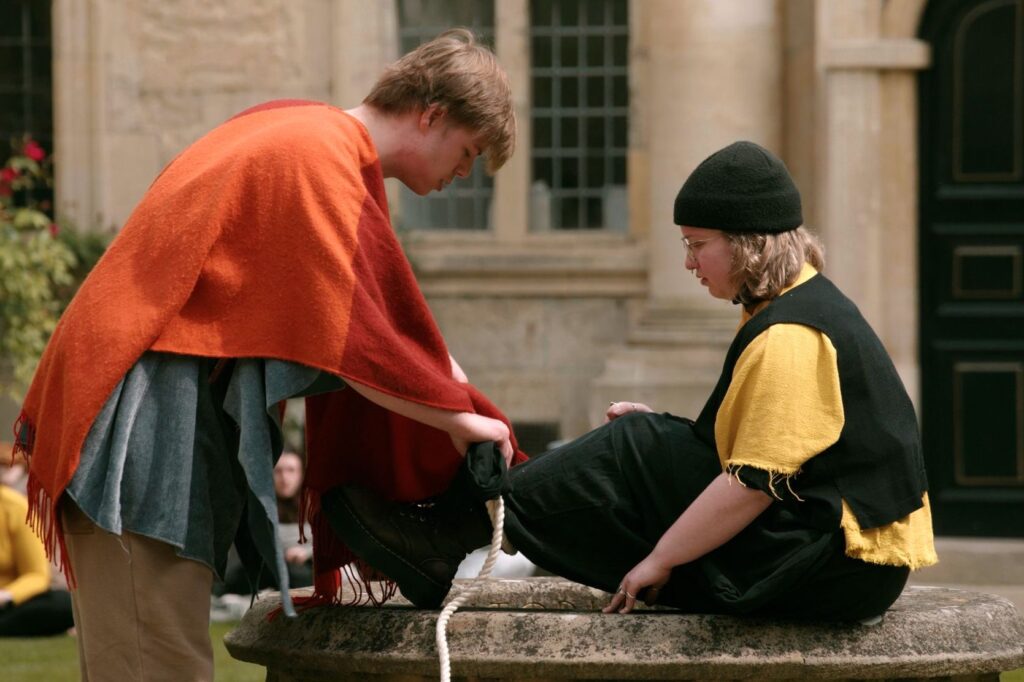
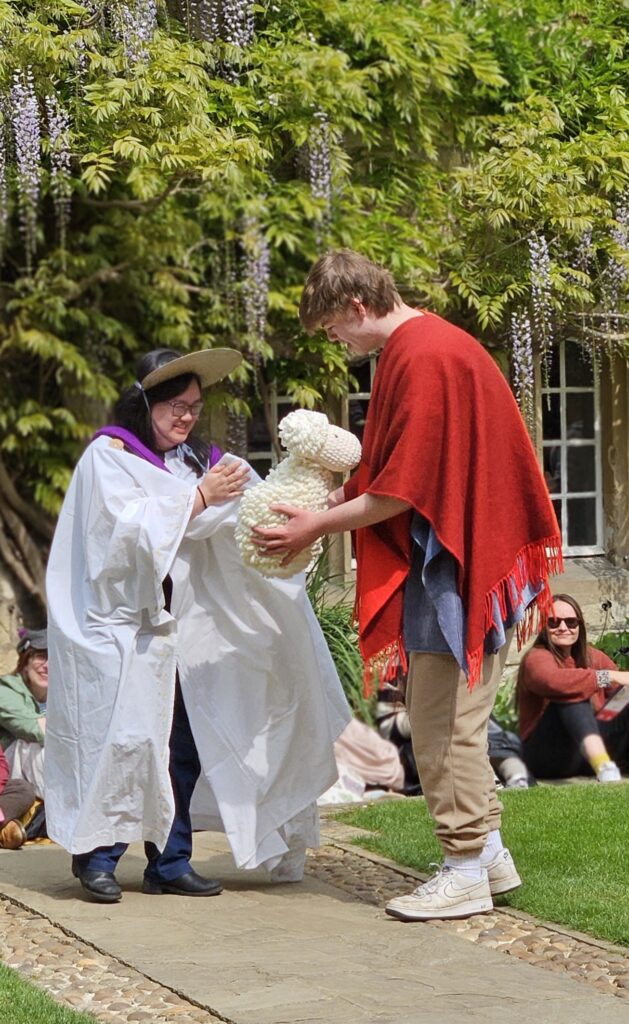
Will he really do it? Abraham is getting ready to sacrifice his oldest son, Isaac (Picture 7) … but fear not! The angel of the lord approaches and shows him a sheep to sacrifice instead – the little guy, hand-crocheted by one of the cast members, rapidly became the true star of the day (Picture 8).
After a refreshing tea break, we moved from the Front Quad into the Churchyard, and from the Old to the New Testament. The fifth play of the day was the Annunciation, or rather Die Eerste Bliscap van Maria (‘The First Joy of Mary’). It was performed in Middle Dutch: a first (but hopefully not last) for the Oxford Medieval Mystery Plays!
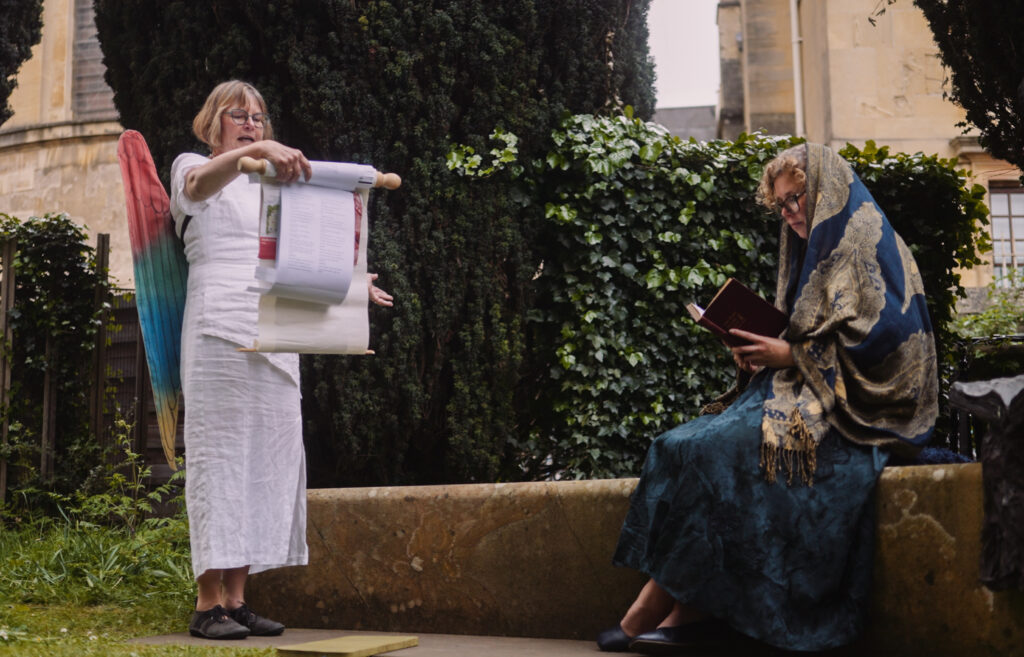
Picture 9: The angel Gabriel announces the happy news to the reading Mary.
True to the Gospels, the Annunciation was followed by the Nativity. It was a particular pleasure to welcome back Les Perles Innocentes, who travelled all the way from Fribourg to wow us with their expert performance of the Comédie de la Nativité, written by none other than Marguerite de Navarre.
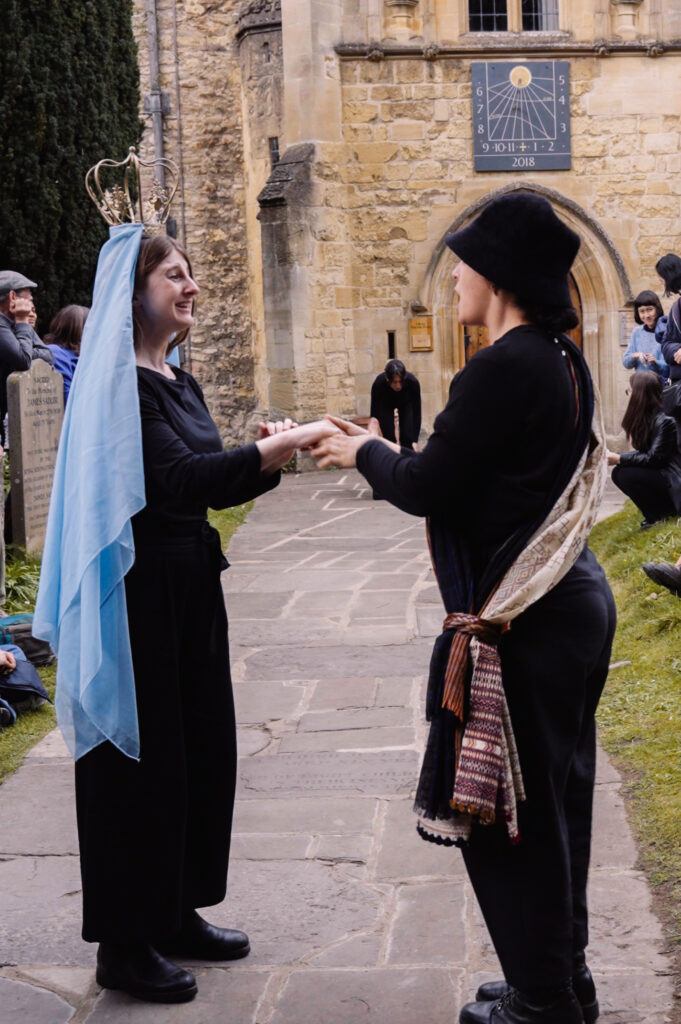
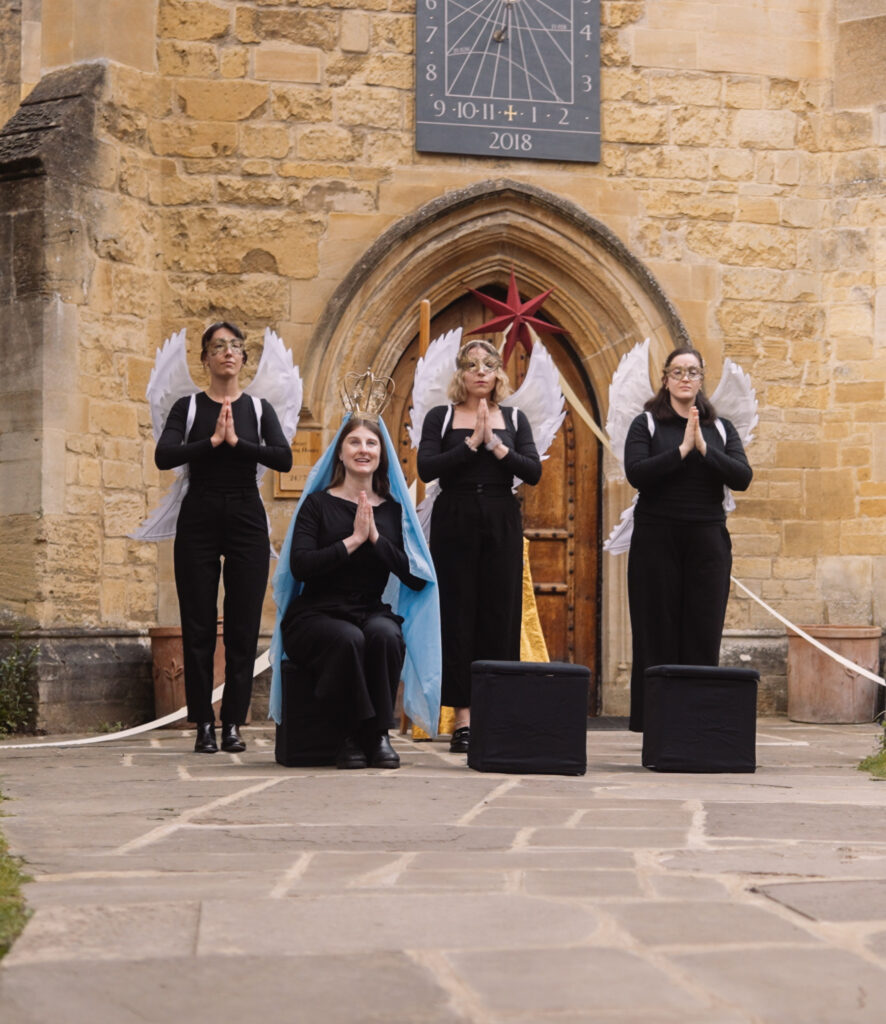
Picture 10: Mary and Joseph are desperately looking for a place for Mary to give birth. – Picture 11: If the stable looked as gorgeous as the library of Teddy Hall, it surely wasn’t the worst place to be born in!
Our next play skipped ahead, showing us the grown-up Christ at the Wedding at Cana. This play was a world premiere, reconstructed from only 1.5 surviving lines in the York cycle!
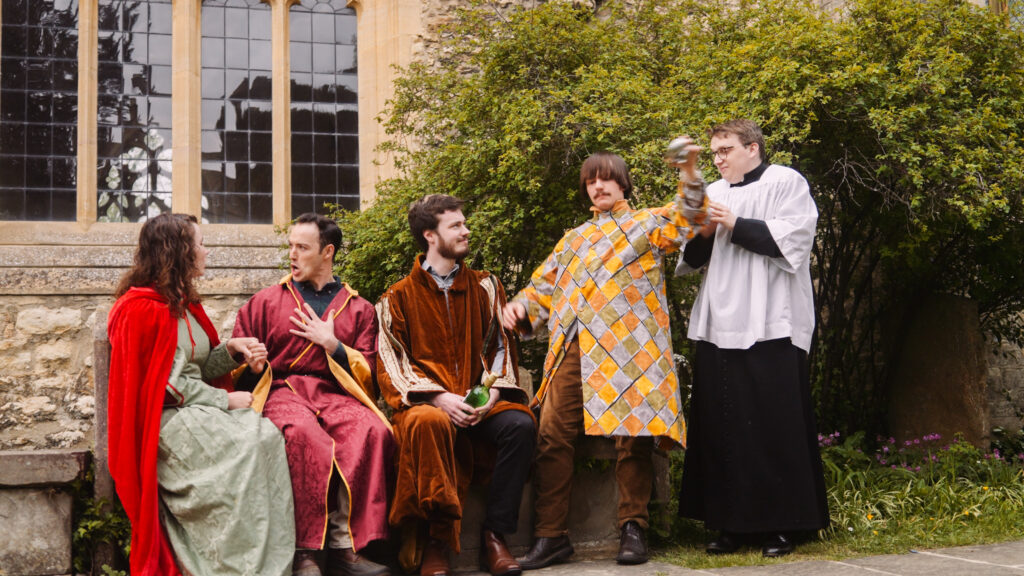
Picture 12: Panic at Cana – the wine has run out at the wedding! What to do?
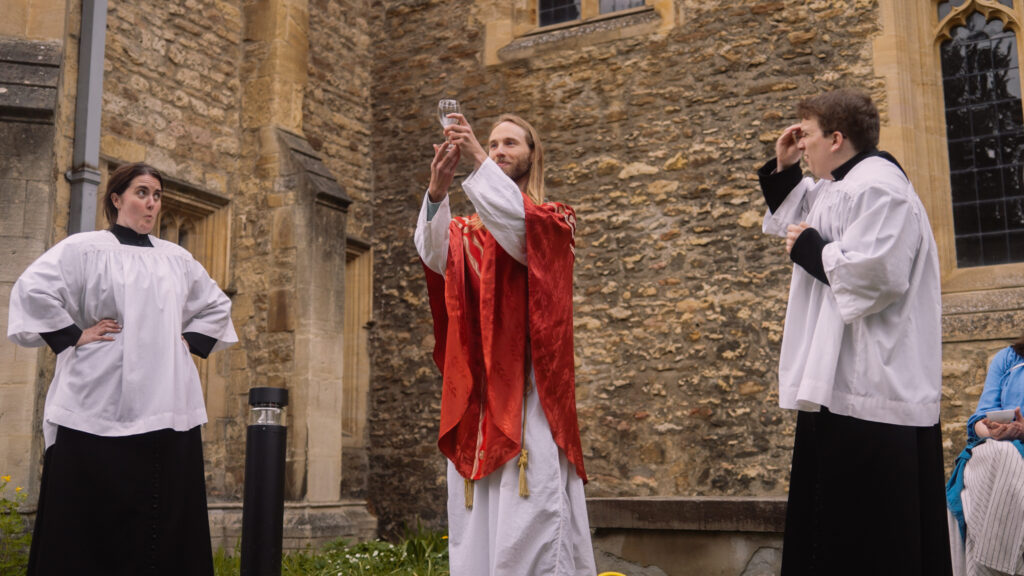
Picture 13: Christ is there to save the day and transforms the water into wine. The servants are amazed!
From Cana, we moved straight to Golgotha and a Middle English performance of the Crucifixion. The York Crucifixion, strangely, is a comedy, and the four soldiers crucifying Christ were accordingly equipped with ‘Cross flatpack instructions’ and giant inflatable hammers. Certainly not inflatable, however, was the cross, which was purpose-built just for this production and turned into a much-coveted prop for numerous plays.
Picture 14: The poor, overworked soldiers struggle to lift up the heavy cross.
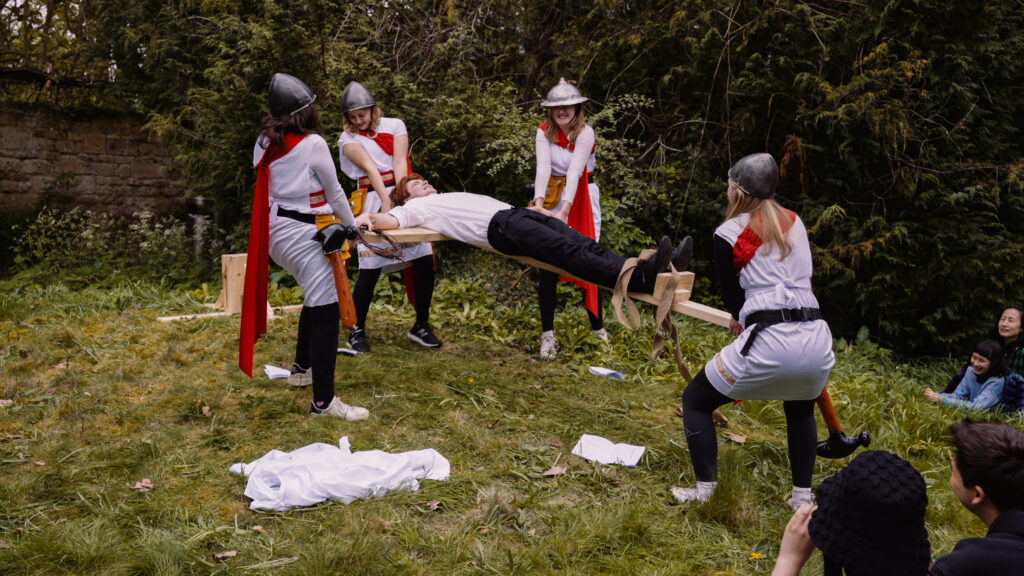
Once the soldiers had vacated the grassy mound in Teddy Hall’s Churchyard, the mourners came: the three Marys (the Virgin, Mary Magdalen, and Mary, Mother of John) and John arrived for the Lamentation, represented by the Bordesholmer Marienklage and beautifully sung in a mixture of Latin and Low German.
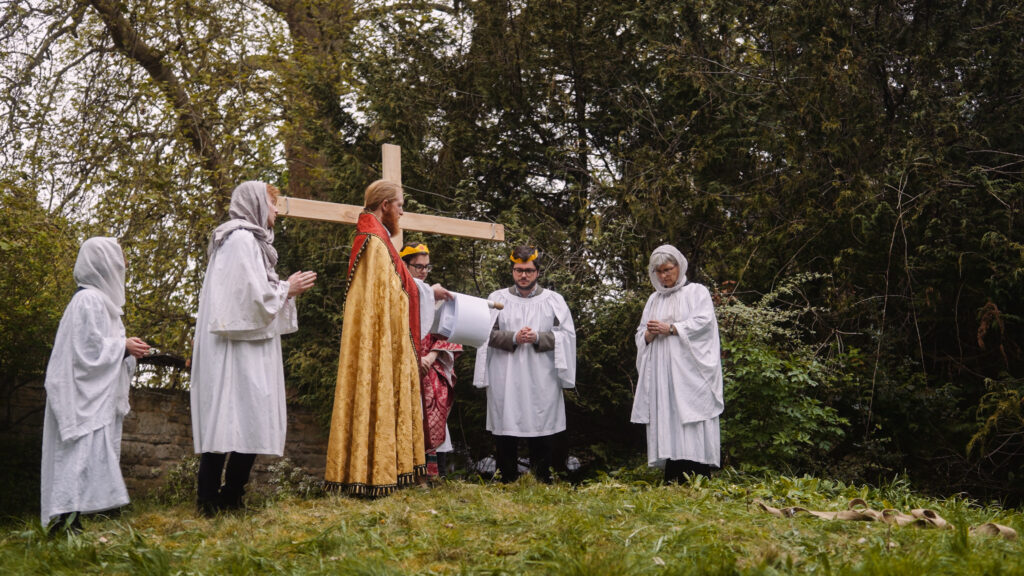
Picture 15: Owe, owe nu ys he dot…
Moving directly from the cross to the crypt, we were told about the Harrowing of Hell by the Choir of St Edmund Hall through sung Latin sequences.
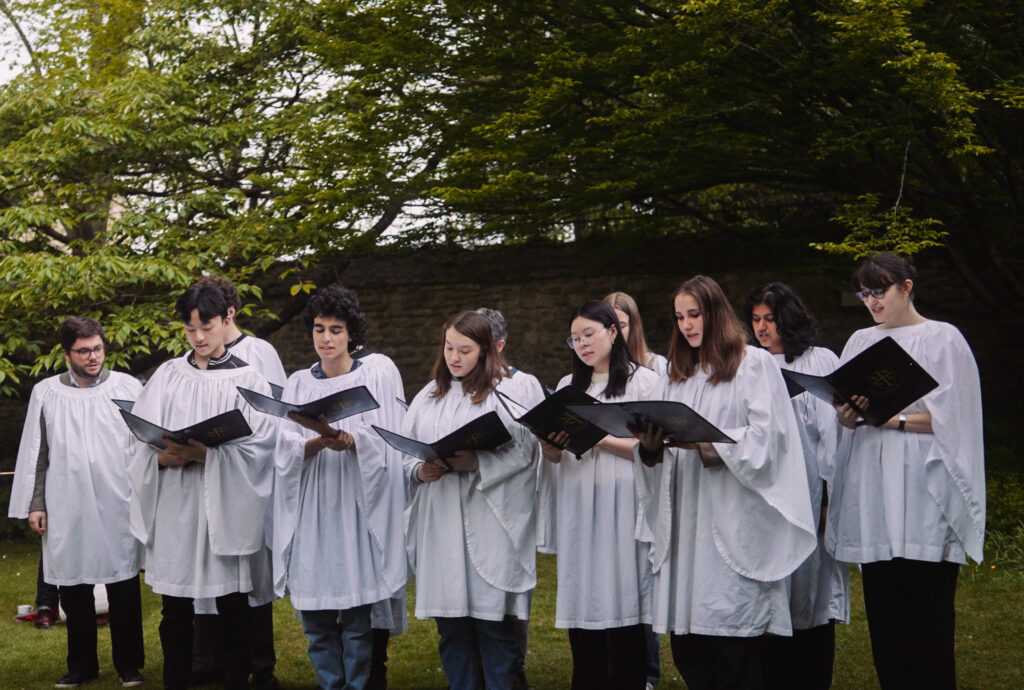
Hell having been harrowed, it was time for another tea break, after which we were welcomed back by the angelic hosts of the Choir (Picture 16). And then it was time for some good news: the Resurrection! Performed in the Middle English of the York version, this play truly had it all: sleeping soldiers, lamenting Marys, bickering priests, and a highly enthusiastic angel.
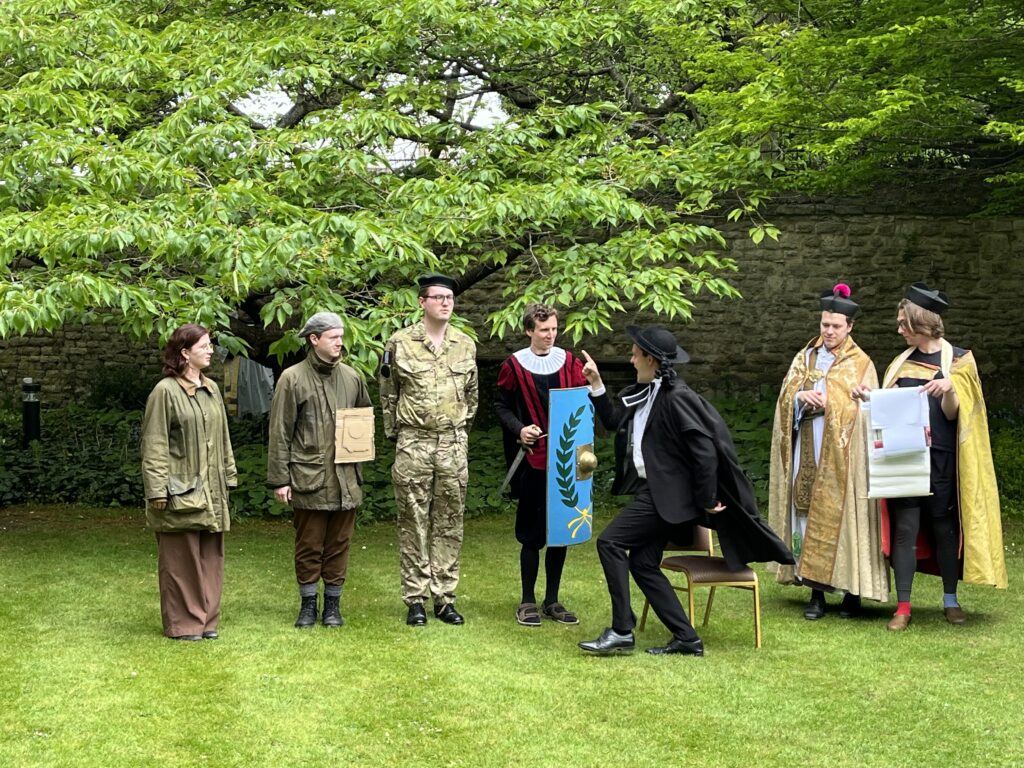
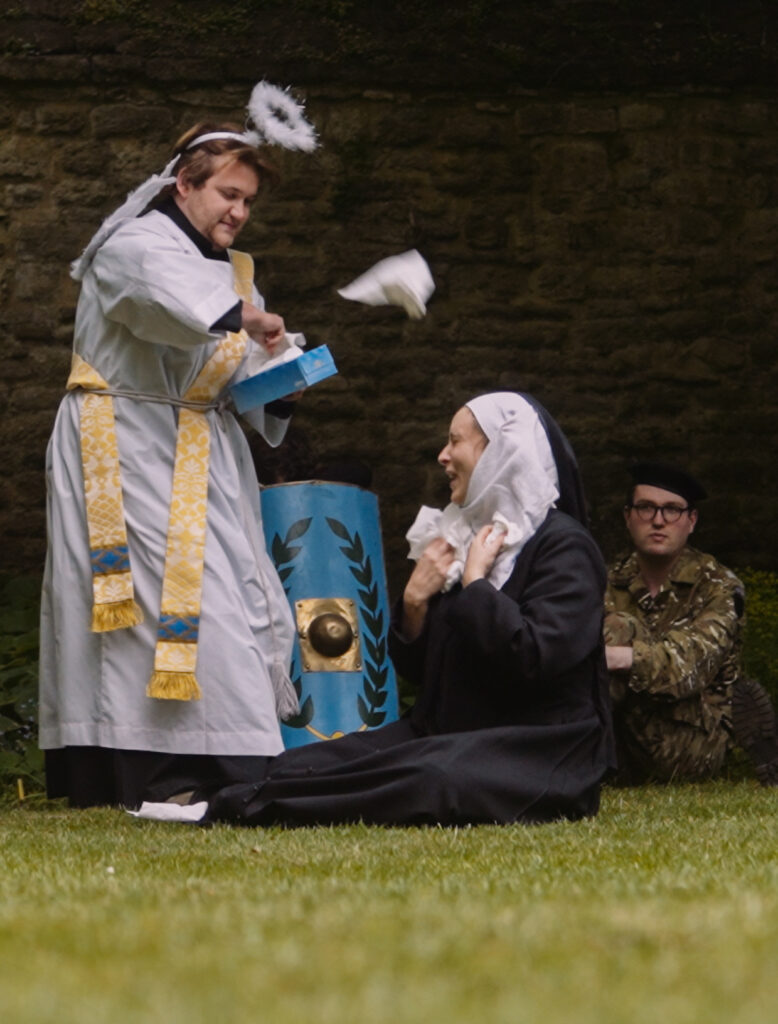
Picture 17: An outraged Pilate commands the soldiers to find out the truth about the rumours concerning Christ’s resurrection. At least Caiaphas and Annas, the extremely well-dressed high priests, are there to back him up. Picture 18: Mary lamenting at the tomb – thankfully, she, too, receives moral support from the angel.
Leaving the Gospels behind, we moved on to the only non-biblical story of the day: The Martyrdom of the Three Holy Virgins by Hrosvitha of Gandersheim, performed mostly in (absolutely flawless!) Latin, with a few bits in modern English.
Picture 19: Governor Dulcitius has been ridiculed by his prisoners, the holy virgins Agape, Chionia, and Irena … his embarrassment will not go unpunished.
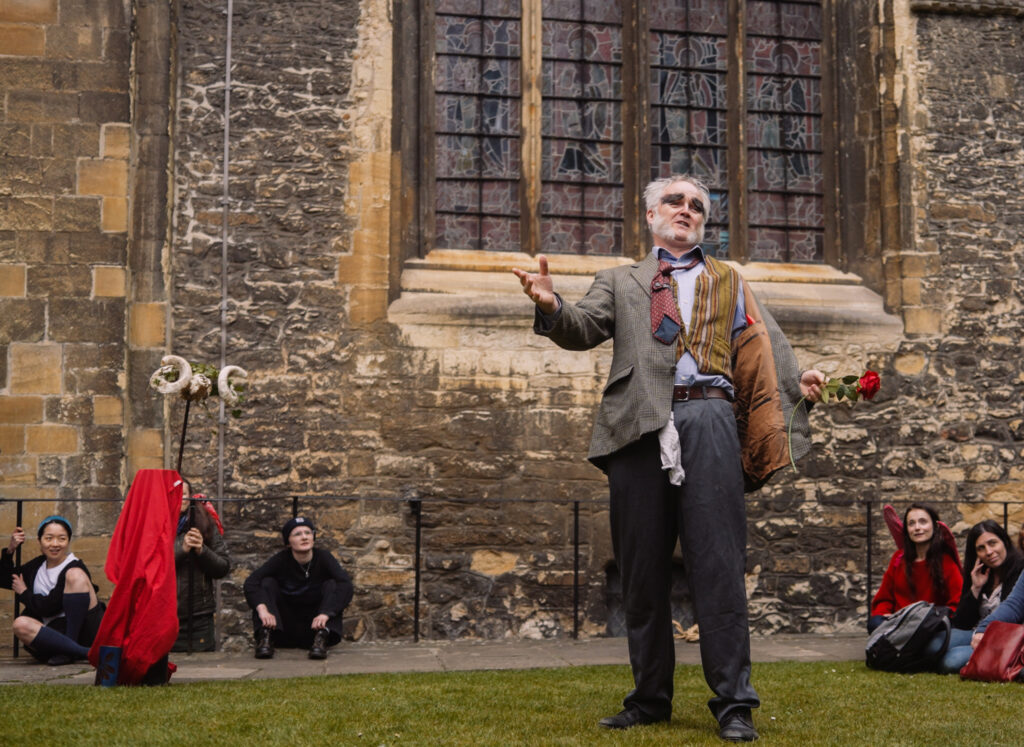
Picture 20: The two older sisters are burned, while the youngest is forced to watch. But never fear: all three will be rewarded in Heaven for their martyrdom.
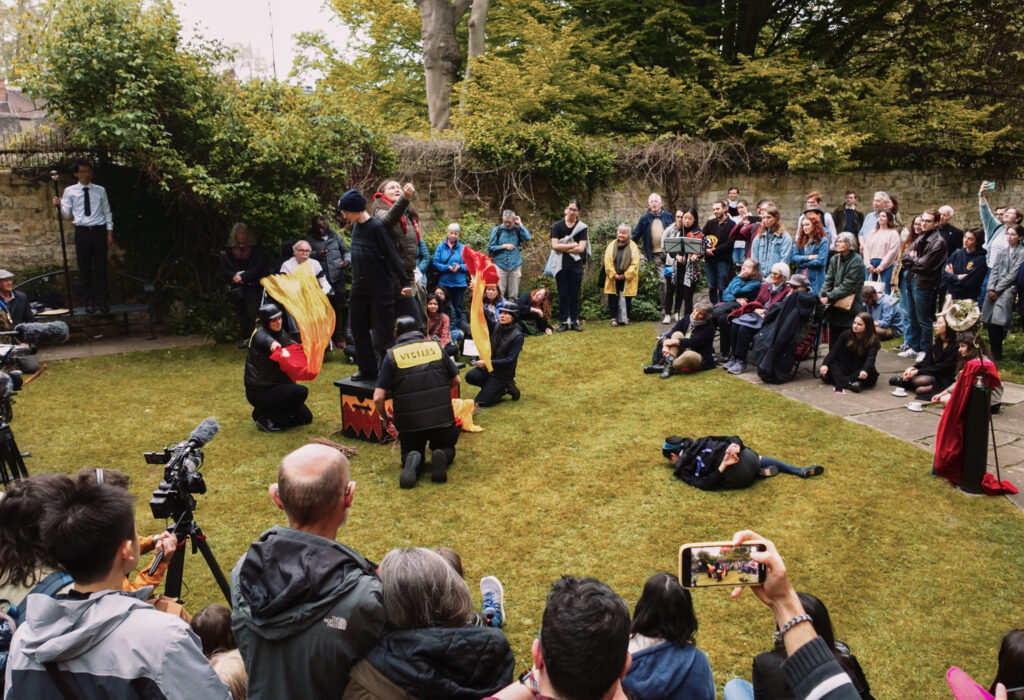
Last, but by no means least, it was time for … the Last Judgement! Performed in a modern English adaptation of different Middle English versions, this wonderfully cheerful and funny play was the perfect end for a fantastic day.
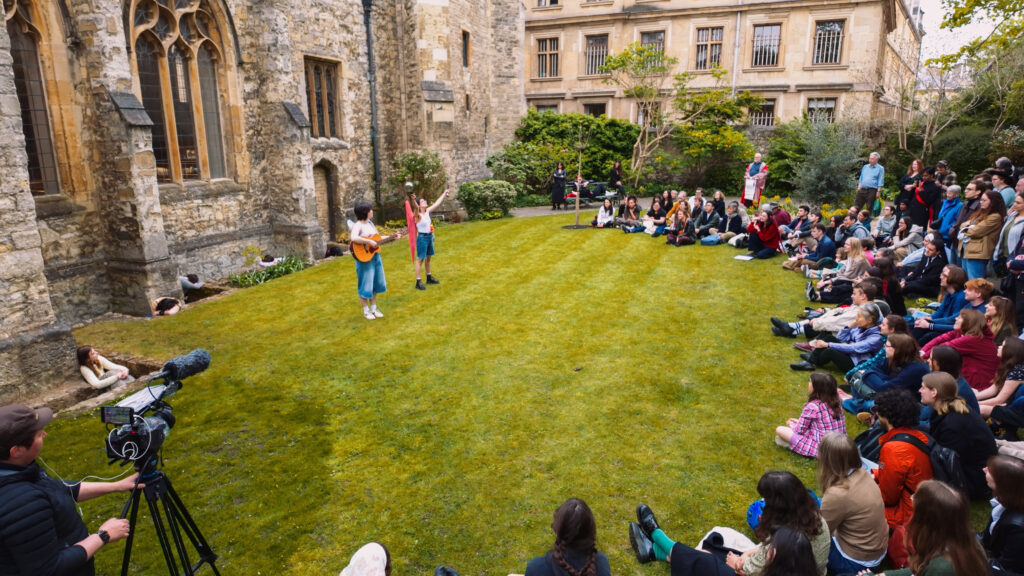
Picture 21: Hey guys, it’s Gabe! The archangels Gabriel and Michael open Judgement day, while the soon-to-be-raised souls rest in the ditch between library wall and lawn.
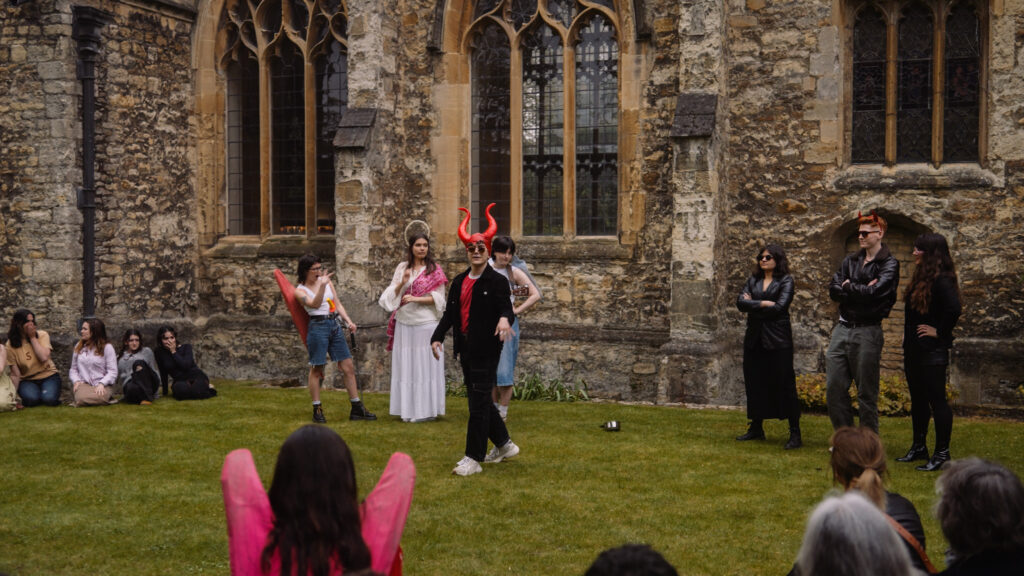
Picture 22: Who will get more souls? Jesus and the angels, or Lucifer and the demons?
And … that was it! Thirteen plays, five languages, two tea breaks, and five hours later, we had travelled all the way from the Creation to Judgement Day, from Heaven to Hell, from Bethlehem to Golgotha, and from Front Quad to the far side of the library.
Our heartfelt thanks goes to everyone who made this day possible: on and off stage, casts, crews, organisers, helpers, and so many more. We are particularly grateful to Jim Harris, our Master of Ceremonies; David Maskell, who wrote the modern English prologues; and Tristan Alphey and the other helpers for their support during the day. This year’s Medieval Mystery Plays are by far the best-documented yet: Ben Arthur, James May, Archie Dimmock, and Tea Smart filmed the entire day; their recordings will be released on the St Edmund Hall Mystery Cycle page at a film launch party at the end of Trinity Term. Ashley Castelino took many fantastic pictures, and Robert Crighton and Liza Graham recorded impressions from audiences and participants for their podcast Beyond Shakespeare.
Of course, what a play really needs is its audience. We were delighted to see so many of you there, and overwhelmed by the amount of positive feedback we received. Here are just some of the comments we collected in our visitor book – many audience members had their favourite play from the host of performances:
“Brilliant! Loved the Nativity especially!”
“Great job! Love the Wedding feast!”
“Terrific! Thank you very much. I particularly enjoyed Adam and Eve, and Satan with his acolytes in [the Last Judgement]!”
“Really enjoyed the camp Satan!”
“The singing [in the Nativity, Lamentation, and Harrowing of Hell] was superb. Altogether a delightful event!”
The best audience members are naturally those who were themselves surprised by how much they enjoyed themselves: one person wrote that they had a “very unexpectedly enjoyable day supporting a friend in one play, but then enjoy[ed] all the others!” Many also appreciated the use of medieval languages in keeping these plays “alive” through modern performance and praised the “pace, diversity, and inventiveness” of the troupes, the beautiful medieval setting of St Edmund Hall, and the overall “vibrant and entertaining” environment of the Cycle. One particularly nice comment described our day of performances as “full of whimsy” – made even more whimsical by the little stars they drew around their comment. Thank you very much to each and everyone of you!
Are you sad you missed out? Can you not wait to get back into medieval drama? Watch this space! The Oxford Medieval Mystery Plays will be back …
Picture Credits
- Pictures 2 and 8: Ashley Castelino
- Picture 6: Rahel Micklich
- Picture 17: Antonia Anstatt
- Header and Pictures 1, 3, 4-6, 9-16, 18-22: Stills from the video recordings made by Ben Arthur, James May, Archie Dimmock, and Tea Smart.















